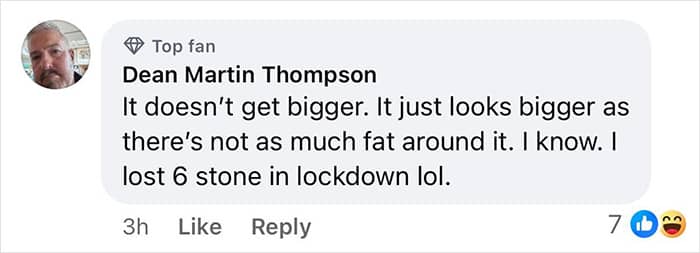British men are reportedly noticing an increase in the size of their manhood, which may be linked to Ozempic and other “skinny jabs.”
Celebrities like Elon Musk and James Corden have admitted to using semaglutide medications for weight loss, sharing varying levels of satisfaction with their results. Now, a doctor has claimed that these injections may indirectly affect men’s privates.
HighlightsA doctor has suggested a link between weight-loss medications like Ozempic and an increase in the size of men’s genitals.It comes after a study reported an increase in the average size of British men’s privates between 2022 and 2024.Male celebrities have begun speaking openly about their use of Ozempic for weight loss and reported different side effects.
Data collected by the online pharmacy NowPatient shows that the average size of British men’s manhood increased by 0.46 inches (1.16 cm), reaching 5.63 inches (14 cm), between 2022 and 2024.
This represents an 8.9% increase, placing the UK 7th in the global rankings for growth.
RELATED:People are discovering a new anatomical side effect of using Ozempic
Growth is different from overall size. In terms of overall size, Britain reportedly ranks 60th in the world.
Naturally, the Member Measurehas its limitations, as data was self-reported and may be unreliable—similar to surveys on infidelity or other sensitive topics where respondents are likely to be dishonest.
Moreover, some of the studies had small sample sizes, making them unrepresentative of the broader male population in the UK.
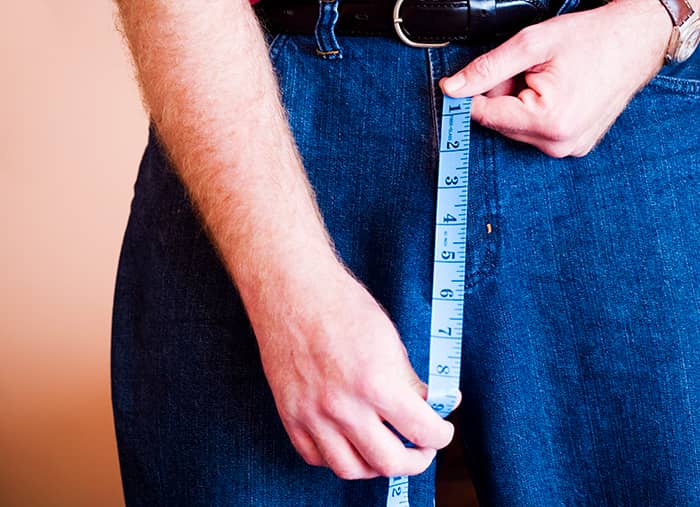


Age plays a significant role in genital size, explained Dr. Richard Viney, a consultant urological surgeon at the Queen Elizabeth Hospital in Birmingham, England.
It’s possible that older men were underrepresented or excluded from these samples. “Men’s p*nises shorten as they get older (due to) increasing body fat and increasing prostate size drawing the p*nis back into the body,” Dr. Viney told the Daily Mail.
Losing weight appears to be affecting how men see their privates
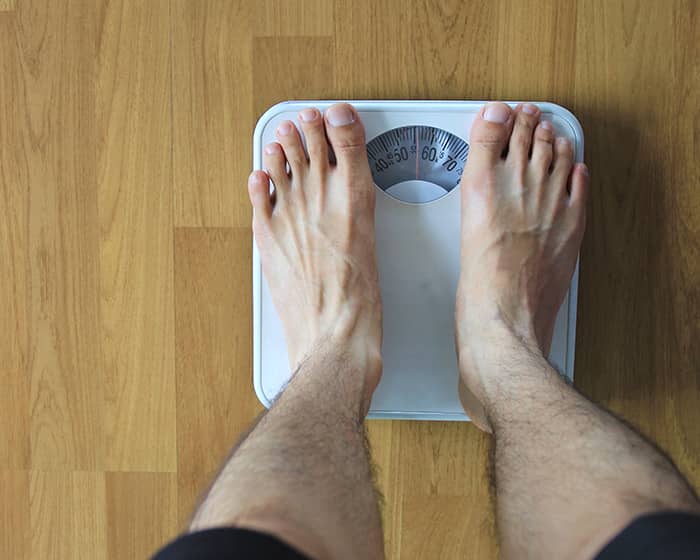
The surgeon noted that, theoretically, medications like Ozempic and Wegovy, which are used to treat diabetes and obesity, could also contribute to genital growth.
However, correlation does not necessarily imply causation, and the observed effect could simply be an optical illusion. “It’s possible there may be an Ozempic effect,” Dr. Viney said. “As men lose weight, their p*nises appear larger.”



Taking to the r/Ozempic subreddit, one user shared that he noticed an increase in the size of his manhood after using the semaglutide injections.
“I recently measured myself down there and noticed I gained about 1 inch,” the Redditor wrote.
“Now I think people will say it was because of the fat loss, however at the time I measured myself before 4 years ago was thinner. I also bone pressed during measurement before and also this time.”
One user replied, “Ozempic does not enlarge your p*nis, but an er*ct p*nis may change size considerably depending on time of day, temperature, and factors other than s*xual arousal. So it’s probably just simply that.”
The average size of British men’s manhood increased by 0.46 inches between 2022 and 2024
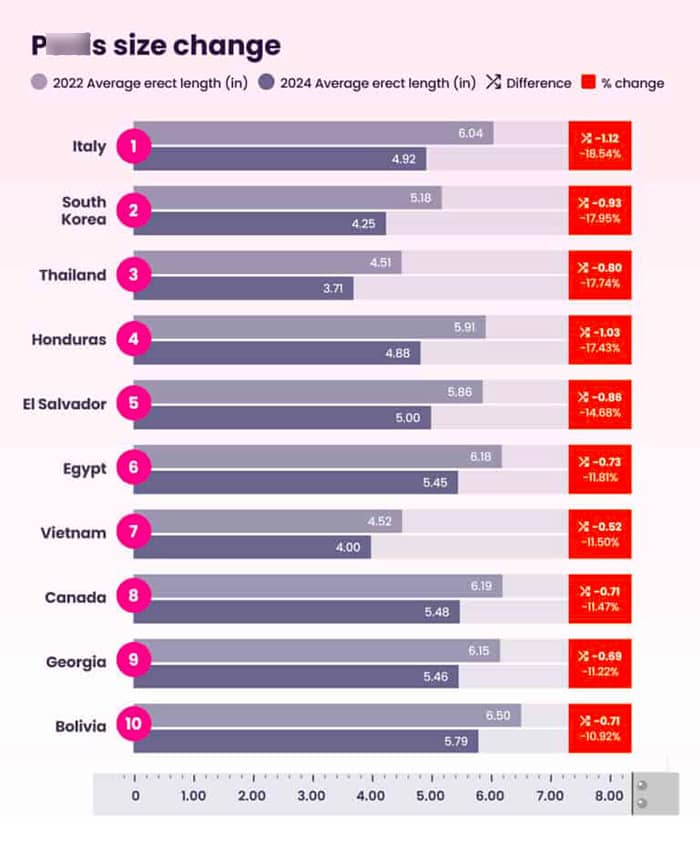
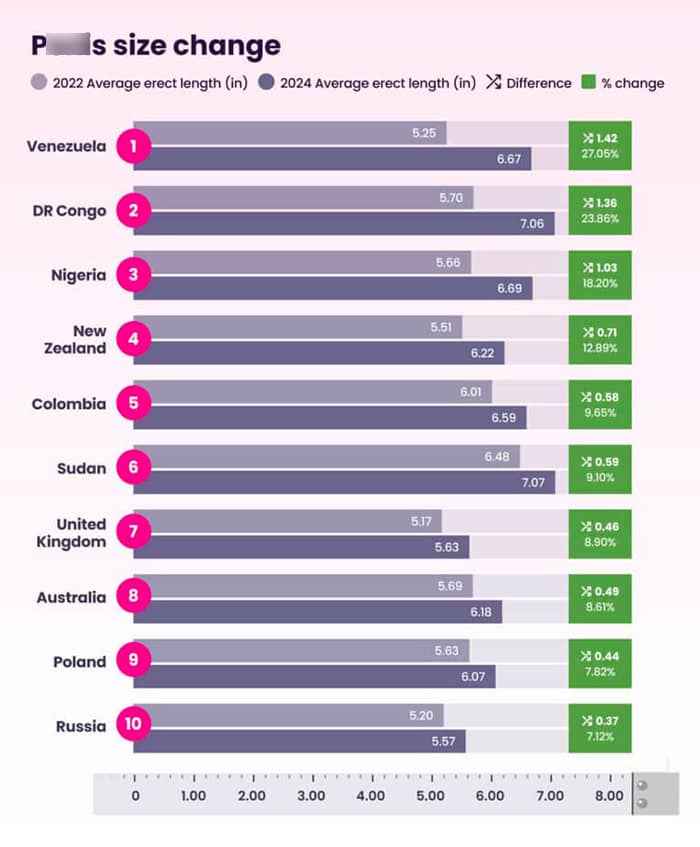
The Redditor then claimed that improved blood flow may be the reason, stating, “I had heart problems and didn’t know it at the time, so I suffered from ED. You may be right — Ozempic fixed a lot of things.”
Harvard Medical School does not list changes in genital size as an Ozempic side effect. Instead, it notes that the most common side effects are gastrointestinal (diarrhea, loss of appetite, nausea, vomiting, constipation).

Other less common but possible side effects include headaches, increased heart rate, dizziness, and fatigue. Some individuals may also experience mild reactions, such as redness or itching.
Less common but serious side effects include pancreatitis (inflammation of the pancreas), gastroparesis, bowel obstruction, gallstone attacks, and bile duct blockage.According to the Cleveland Clinic, semaglutide may also increase the risk of thyroid cancer.
Urological surgeon Dr. Richard Viney called the optical illusion the “Ozempic effect” amid the rising popularity of the weight-loss medication

Though female celebrities have been more vocal about using Ozempic and similar weight-loss medications, some male stars have also shared their opinions on GLP-1 injectables, either highlighting how effective they are or outright rejecting them.
Speaking on the This Life of Mine podcast, James Corden said, “I tried Ozempic, and it won’t be surprising to you when you look at me now that it didn’t really work.”
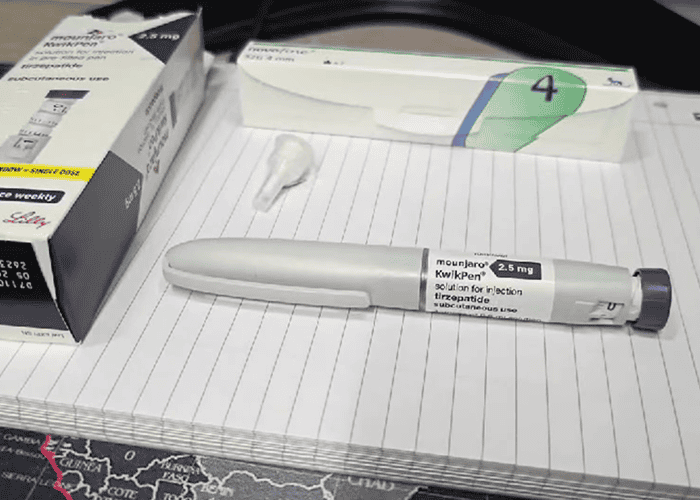
“I tried it for a bit and then what I realized was I was like, ‘Oh no, nothing about my eating has anything to do with being hungry.’ All this does is make you feel not hungry. But I am very rarely eating [just because of hunger].”
Last year, Elon Musk revealed that he was using Mounjaro, a diabetes medication (tirzepatide) that triggers dramatic weight loss.
The Tesla CEO wrote that “nothing would do more to improve the health, lifespan, and quality of life for Americans” than reducing the cost of GLP-1 medications.

Josh Gad referred to the medications, which suppress appetite, as a “miracle.” He said, “[It] has suppressed, in a great way, that noise … when I wake up, I feel hunger pains — and so much of that is psychological, right? — and what this does is it takes away that signal.”
The Tony-nominated actor revealed that he lost 40 lbs (approx. 18 kg) on the GLP-1 medication.
Stephen Fry shared that he was an “early adopter” of Ozempic. “The first week or so, I was thinking, ‘This is astonishing. Not only do I not want to eat, I don’t want any alcohol of any kind. This is going to be brilliant,’” he recalled.
Then, he began to feel sick and experienced severe vomiting. “I was literally throwing up four, five times a day, and I thought, ‘I can’t do this.’ So that’s it.”
Men have shown particular interest in learning more about the “Ozempic effect”

















